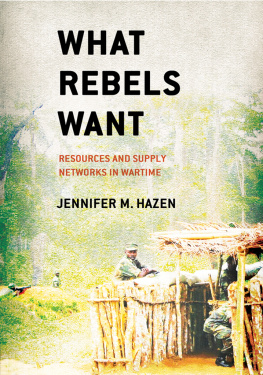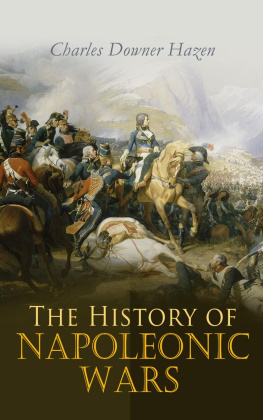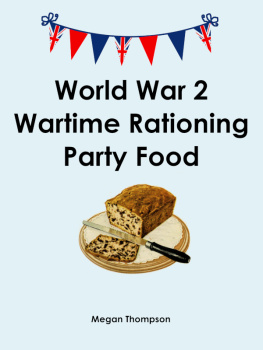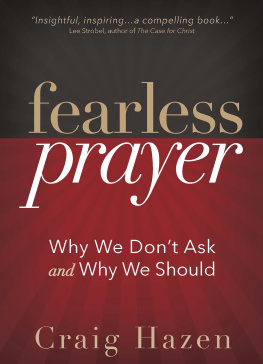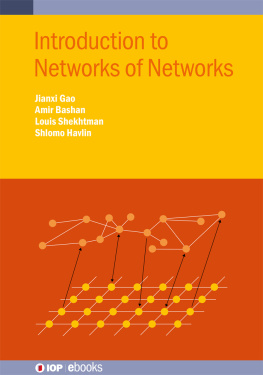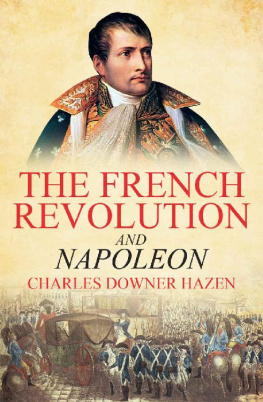To my grandmother Joyce, who began a tradition in my family of strong and adventurous women who travel the world.
To my mom, Melanie, who taught me to be a resilient, independent woman, capable of traveling the globe and crazy enough to pursue my dreams, no matter where they took me.
And to my niece, Sami. May you follow in our footsteps and have your own adventures.
Whatsoever therefore is consequent to a time of war, where every man is enemy to every man, the same consequent to the time wherein men live without other security than what their own strength and their own invention shall furnish them withal. In such condition there is no place for industry, because the fruit thereof is uncertain; and consequently no culture of the earth; no navigation, nor use of the commodities that may be imported by sea; no commodious building; no instruments of moving and removing such things as require much force; no knowledge of the face of the earth; no account of time; no arts; no letters; no society; and which is worst of all, continual fear, and danger of violent death; and the life of man, solitary, poor, nasty, brutish, and short.
Hobbes, Leviathan, 1651
Preface
Wars are complex. They change over time, as do the actors that fight them. The point is common sense, but it rarely comes to the fore in discussions of civil war. Most studies of civil war are static. They approach wars based on a set of assumptions about the actors, their goals, and their capacities. I approach the study of civil war from a different angle. In this book, I assume that wars are dynamic and that the groups fighting them transform and adapt over time. A groups capacity to fight does not remain constant over time, and because of this the opportunities for war and peace change as well. These insights come from several years spent living and working in Africa.
I first arrived on the continent in 2002. My intent was to study rebel groups in West Africa and to understand why it was so difficult for international actors to help end civil wars. I lived and worked in Sierra Leone from early 2002 through 2005. During this time I worked for the International Crisis Group, a nongovernmental organization well known for its research and analysis in crisis zones, and for the United Nations peacekeeping mission in Sierra Leone. I traveled throughout Sierra Leone, speaking to many individuals from all walks of lifecivilian, government, humanitarian, military, and rebelabout the war and the postconflict peace-building process. I also had the opportunity to conduct more-limited research visits to Liberia, Guinea, and Cte dIvoire. These visits provided a unique view from the field of the dynamics of war, the conditions on the ground, and the challenges that everyone faced to survive. From 2006 to 2010, I worked as a senior researcher with the Small Arms Survey, a nongovernmental research organization based in Geneva. I spent a great deal of time in Liberia, Cte dIvoire, and Nigeria. These experiences enhanced my understanding of what drives conflict and the incentives that exist for war and for peace.
At the heart of understanding a groups capacity for war is the measurement of the groups access to resources. I use this term broadly, to encompass all resources, not just valuable gemstones, that are needed to sustain a war. Access to resources fluctuates over time, suggesting not only changes in group capacity but also new opportunities for conflict management. It is by studying these fluctuations that we come to understand why access to resources cannot be taken as static and certain across time. A story from a 2003 trip to Guinea illustrates this crucial point.
I was sitting on an old wooden chair on the porch of a run-down house in the small town of Macenta, speaking to women about war. What struck me most was the normality of the situation. These women were neatly dressed, with their nails painted bright colors, hair perfectly coiffed, and gold jewelry shining in the sun. They had returned only the day before from the front lines of the civil war in Liberia. It was January 2003, just months before the onslaught on Monrovia would begin, an offensive that would end the war several months later. The women I spoke with were soldiers in the rebel movement based in the north of Liberia, the Liberians United for Reconciliation and Democracy (LURD). Yet I was speaking with them not in Liberia but just across the border in Guinea, where LURD maintained a safe haven. There its combatants could rest and recuperate before returning to the front lines. This unit, an all-female unit, was taking a break from the fighting.
These women, with noms de guerre like Black Diamond, were not shy about the fact that they currently sat in Guinea, where their families lived, and where fellow combatants sought short respites from the ongoing fighting in Liberia. They were not refugees. They were guests of the Guinean government. No ceremony heralded their entry into the country, and no aid agency provided them with food or medicine, but there could be no mistake that the Guinean government allowed them to live in this border region, to move freely back and forth across the border, and to operate militarily, at times, within the borders of the Guinean state.
Such hospitality did not always extend to active support. When international pressure increased for the Guinean government to stop supporting the rebels, LURD combatants were forced to return to Liberia and supplies from Guinea waned. The female combatants told me how the Guinean government had recently cracked down on LURD operations in southeast Guinea. Under international diplomatic pressure, and sensing LURD combatants had become too visible along the border and too bold in their activities, the Guinean government pressured LURD to reduce its numbers and to operate under the radar of international humanitarian organizations and human rights groups. This pressure may have constrained the most brazen actions of LURD on Guinean soil, such as the forced recruitment of local Guinean residents to serve as porters to carry goods into Liberia, but it did not completely eliminate LURD access to Guinea or its operations. In fact, it could be argued that the actions taken by the Guinean government served more to placate international actors than to radically change the situation on the ground. However, the reduction in Guinean support proved a sore point with LURD fighters, suggesting that support was both expected and needed to sustain the war effort.
The female fighters facilitated a meeting with their commander and the leader of the military wing of LURD, Sekou Conneh. We agreed to meet on the border. The Guinean military facilitated our journey by escorting our team there. We passed quickly through the border, which was guarded by a few Guinean soldiers, and ended up in that gray zone that exists between formal state frontiers, inside neither Liberia nor Guinea. Despite the well-known porosity of borders in West Africa, the Guineans clearly controlled this gateway into Liberia. We would later learn that the Guinean military also actively guarded the area in order to prevent reporting on the movements of civilians and rebels alike. The Guinean government, claiming security reasons, prevented humanitarian groups, such as Doctors without Borders, from operating in the towns closest to the border. Others argued such measures aimed to protect the secret that people and goods moved back and forth daily. Without a doubt the Guinean government supported LURD, but it wanted to keep that support quiet.

